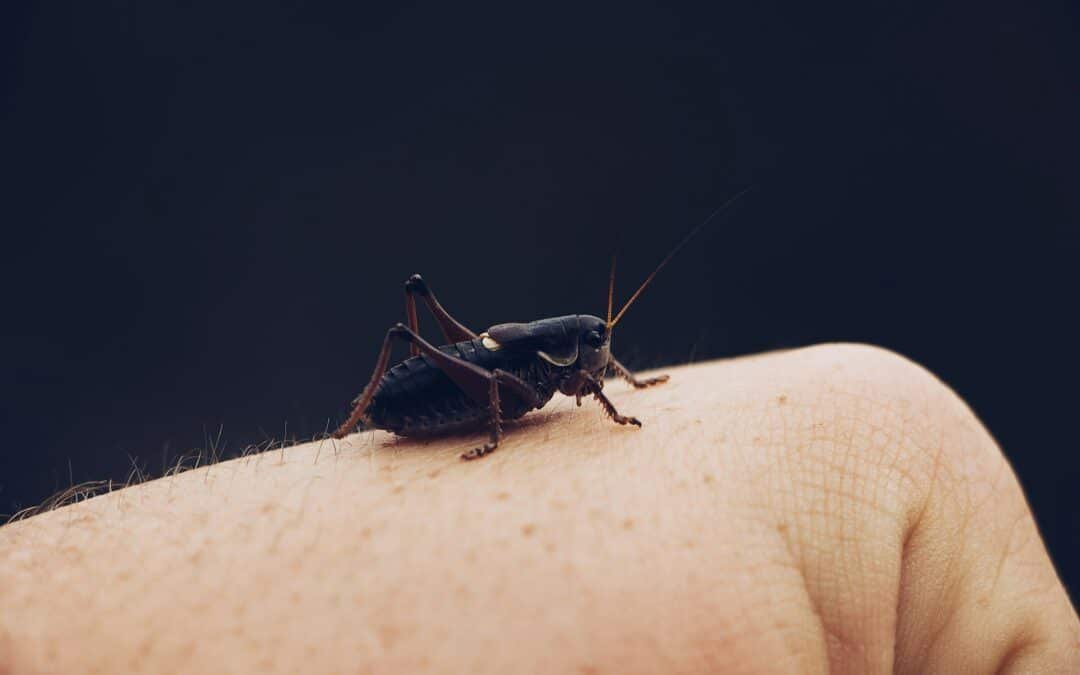Dealing with bed bug bites can be a rather itchy and uncomfortable experience. These tiny pests can cause more than just a minor irritation; they can impact your health significantly. By understanding how bed bug bites affect your well-being and learning effective treatment methods, you can take steps towards minimizing their impact and restoring comfort in your life. It’s essential to address these bites promptly and accurately, as doing so can prevent further complications and ensure that you don’t face a larger infestation issue down the road.
In Tulsa, Oklahoma, dealing with bed bug challenges becomes more pertinent as the seasons change. Bed bug bites aren’t just a nuisance; they can have lasting effects if not treated correctly. This article dives into how these bites affect your health and provides insights on effective treatments. With helpful advice, you can manage these pesky bites and regain peace of mind.
Identifying Bed Bug Bites
Recognizing bed bug bites is the first step in managing their effects. These bites usually appear in clusters or lines on your body, often in areas like your arms, neck, face, and legs. They can look a lot like mosquito bites—red, swollen, and itchy. However, unlike mosquito bites, bed bug bites are more localized and often appear in groups.
You might be wondering how to tell these bites apart from those of other bugs or skin conditions. Bed bug bites are typically smaller and grouped closely together, often leading to more intense itching and swelling. Not to mention, if you notice bites consistently popping up after a night’s sleep, you might be dealing with bed bugs.
Here’s a quick checklist for identifying bed bug bites:
– Red, itchy bumps that often appear in clusters or lines
– Bites concentrated on exposed areas like the arms, neck, face, and legs
– Increased itchiness following multiple bites in a small area
By recognizing these signs, you can better distinguish bed bug bites from other biting insects or allergies. This early identification allows you to take effective measures to alleviate symptoms and tackle the root problem.
Health Effects of Bed Bug Bites
Experiencing bed bug bites goes beyond the initial redness and itchiness. Some people may develop allergic reactions to the bites, ranging from mild irritation to more severe reactions like swelling and difficulty breathing. The severity largely depends on individual sensitivity, with some experiencing heightened symptoms and others barely noticing any difference.
Even if the physical reaction seems limited to itchiness, scratching the bites can lead to something more concerning—infection. The open wounds invite bacteria, potentially resulting in painful, swollen skin and a need for medical treatment. It’s crucial to maintain hygiene and avoid scratching to minimize these risks.
Beyond physical symptoms, dealing with bed bug bites can also introduce stress and anxiety. Worrying about an infestation or the fear of being bitten again can interfere with your peace of mind and even affect your sleep. Understanding these varied impacts prepares you to address the full spectrum of issues bed bug bites can cause, thus actively working to improve your overall health.
Treating Bed Bug Bites
Once you’ve identified bed bug bites, the next step is figuring out how to treat them effectively. These bites, while mostly harmless, can be incredibly uncomfortable. Start by cleaning the affected area with mild soap and water to reduce itching and eliminate any bacteria. Applying a cold compress can help reduce swelling and soothe the skin. Over-the-counter antihistamines or anti-itch creams may also provide relief from persistent itchiness and redness.
Avoid the urge to scratch the bites. While it might feel satisfying initially, scratching increases the risk of infection and can lead to more serious skin issues. Keeping your nails trimmed and considering using bandages on the bites at night can help prevent this. If you notice significant swelling or signs of infection, it might be time to consult a professional.
In cases of severe reactions or persistent symptoms, reaching out to specialists is advisable. Taking quick action can prevent discomfort from escalating and ensure that the bites are treated with the necessary care.
Preventing Bed Bug Bites
Preventing bed bug infestations is key to avoiding future bites. Start by conducting routine inspections of your home, especially in common areas where bed bugs like to hide, such as mattresses, box springs, and furniture seams. Regular cleaning and vacuuming can also help keep these pests at bay.
Consider investing in mattress encasements designed to trap and prevent bed bugs from settling into your bedding. Using bed bug sprays can add another layer of protection, especially if you’re traveling or have frequent visitors in your home. Remember, beds aren’t the only hiding spots, so check carpets, curtains, and cracks in the walls too.
If you suspect an infestation, swift action is crucial. Professional pest control services can not only handle the current issue but also provide long-term solutions to keep these unwelcome guests away. Their expertise can offer peace of mind and a safer, more comfortable living space.
Biting Back at Bed Bugs
Living with the constant threat of bed bugs doesn’t have to be your reality. Being informed about how these bites affect your health and knowing how to treat them makes managing the problem achievable. Take proactive steps to protect yourself and your home, ensuring you address potential infestations before they grow.
Knowledge and preparation are your best allies. By staying vigilant and using effective strategies, you can regain control over your environment and enjoy a bug-free life in Tulsa.
Concerned about persistent bites or worried about an infestation? Connect with our bed bug bite specialists for a comprehensive solution in Tulsa. At Tulsa Bed Bug Exterminator, we’re committed to helping you feel comfortable at home again. Reach out today and take the first step toward a pest-free space.


Recent Comments